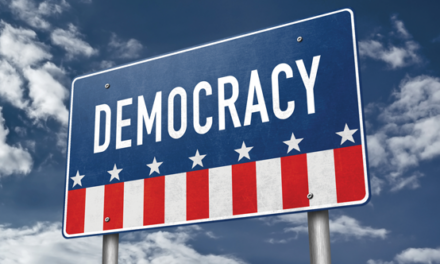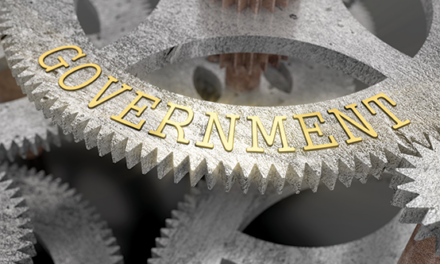Depending on how you look at life in Washington, D.C., the past year either flew by like lightning or oozed like molasses. On the surface, at least, things changed swiftly in 2017, with new names and faces charging into town, making headlines, and shaking up the establishment. But at ground level and in many parts of the government, everything has slowed to a crawl. Lacking clear guidance from the Trump administration, the locals have hunkered down, resigning themselves to getting little work done until the current political storm passes.
For some in Washington, playing the waiting game is just part of doing business in a political town; for others, even a brief pause in the action can be devastating. This is certainly the case in education, especially when it comes to overseeing federal investments in research. Researchers depend on time and consistency to build a strong evidence base. If they’re in the midst of compiling an important dataset or conducting a long-term case study, for example, an interruption can render their work useless. That is why the current administration and its laissez-faire relationship to research (and, at times, the truth) causes many in Washington to be deeply concerned about the future of evidence-based policy making.
 The patient work of research stands in stark contrast to today’s fast-moving, attention-deficit approach to governance. Good research is thoughtful, strategic, and subject to intense scrutiny. It requires relationship building and, above all, time. In education, some of our most valuable research findings are based on data collected over years or even decades. The best example is probably the National Assessment of Educational Progress (NAEP), sometimes referred to as “the nation’s report card.” NAEP has provided a wealth of information about students and schools since the 1970s. This kind of unique long-term trend data helps us understand student achievement and also sheds light on all manner of research sins. It is much harder to obfuscate bad policy decisions when years of research clearly show their effects.
The patient work of research stands in stark contrast to today’s fast-moving, attention-deficit approach to governance. Good research is thoughtful, strategic, and subject to intense scrutiny. It requires relationship building and, above all, time. In education, some of our most valuable research findings are based on data collected over years or even decades. The best example is probably the National Assessment of Educational Progress (NAEP), sometimes referred to as “the nation’s report card.” NAEP has provided a wealth of information about students and schools since the 1970s. This kind of unique long-term trend data helps us understand student achievement and also sheds light on all manner of research sins. It is much harder to obfuscate bad policy decisions when years of research clearly show their effects.
The bottom line is that evidence in all its forms is a vitally important part of policy making. During tumultuous political times, evidence becomes even more important.
Nipped in the bud
To be filed under the category of “what a difference a year can make,” consider President Barack Obama’s efforts to ensure that federal policy decisions would be well-informed by research. In 2016, Obama joined with Congress to pass a law that created the Evidence-Based Policymaking Commission, which was given about a year to come up with a plan for improving the government’s capacity in this area. It was no easy task. Multiple federal agencies collect all kinds of data, much of which is highly departmentalized and subject to intense privacy concerns. Still, despite these and other challenges, the commission succeeded in developing a comprehensive plan that focuses on improving capacity, promoting transparency, and protecting privacy.
The commission’s work just ended in September so it is too soon to assess its effect. However, while there is broad bipartisan support in Congress for the commission’s recommendations for improving the quality and use of evidence in policy making, it is hard to imagine the current administration leading any substantive and nonpartisan effort to do so. Other than selectively citing studies that support President Donald Trump’s approach to school choice, the new administration has been entirely silent on the importance of grounding federal decisions in empirical research.
The new administration has been entirely silent on the importance of grounding federal decisions in empirical research.
For those of us who care deeply about research and the appropriate use of data, this is alarming. Although many organizations support the development and sharing of education research evidence, the federal government’s role remains critical, both financially and symbolically. For example, the Every Student Succeeds Act did not leave it to states to decide what “evidence-based” research looked like in their state plans. An important part of the legislation is its requirement that states use solid evidence to support plans for improving student outcomes. More specifically, the law defined four tiers of evidence to guide states in their efforts: strong, moderate, promising, and under evaluation. By refusing to mince words about the need for evidence, ESSA sent a signal to states that credible research matters. At a time when we have to worry about alternative facts and fake news, it is good to know that this federal education law set such a clear standard.
The downside of ESSA’s requirement is that most state agencies simply do not have the capacity or expertise to lead when it comes to evidence-based policy making. Earlier this year, Harvard professor Thomas J. Kane (2017) argued a point that many in education know all too well: As a nation, we are profoundly underinvested in education research. And for a range of reasons, the investments that we have made often go unused by state and local leaders.
However, ESSA gives states the opportunity to take the lead in developing more “locally grown” evidence, Kane argues. The few resources devoted to research would be better spent if states developed local research networks focused on classroom practice and student learning. In his view, ESSA should let “a thousand pilot studies fly.” Some very real challenges may hinder takeoff, he adds (for example, large amounts of expertise, time, and resources would be needed to develop and analyze such local studies), but still his points are well taken. A culture of evidence-based policy making can’t be developed and supported if it is merely pushed down from on high. As we have learned many times before, in a highly localized system of education, it matters to have local skin in the game.
Use the evidence and tools we have
So where does all this ruminating on evidence-based policy making leave us at the end of a whirlwind political year? Since the administration is not likely to provide leadership in this area, I suggest we focus on making the most of the education research we already have while being smarter and more strategic about the research we want and need.
Historically, state and local leaders have tended to ignore the existing trove of education research. However, we already have a fairly robust evidence base on issues such as early childhood education, reading and literacy, and project-based learning as well as related research reviews, data tools, and other resources meant to help guide people as they tackle school improvement. And while it is not always easy to match local needs with the resources found in clearinghouses or provided by nonprofit organizations, there is, in fact, an abundance of evidence-based material out there. Even if those resources are used simply to start a conversation or inspire an idea, it would be well worth the effort. In an education world obsessed with innovation, it may seem trite to suggest that state and local leaders look to yesterday’s research-based practices. But there is nothing wrong with reviewing the existing knowledge base, identifying a few reasonable goals for school improvement, and developing a plan to meet them.
Looking ahead, the path is not so clear. Many education issues are crying out for more evidence — far too many to address in this column. But for now, let’s agree on one thing at least: Without evidence, policy making is a time-consuming, resource-sucking black hole. Policy decisions based solely on a desire to tap into the next new thing are neither new nor innovative, and we have seen far too much of that in education already.
Reference
Kane, T.J. (2017). Making evidence locally. Education Next, 17 (2). http://educationnext.org/making-evidence-locally-education-research-every-student-succeeds-act
Citation: Ferguson, M. (2017). Stand up for good research. Phi Delta Kappan 99 (4), 74-75.
ABOUT THE AUTHOR

Maria Ferguson
Maria Ferguson is an education policy researcher, thought leader, and consultant based in Washington, DC.










